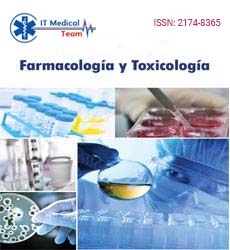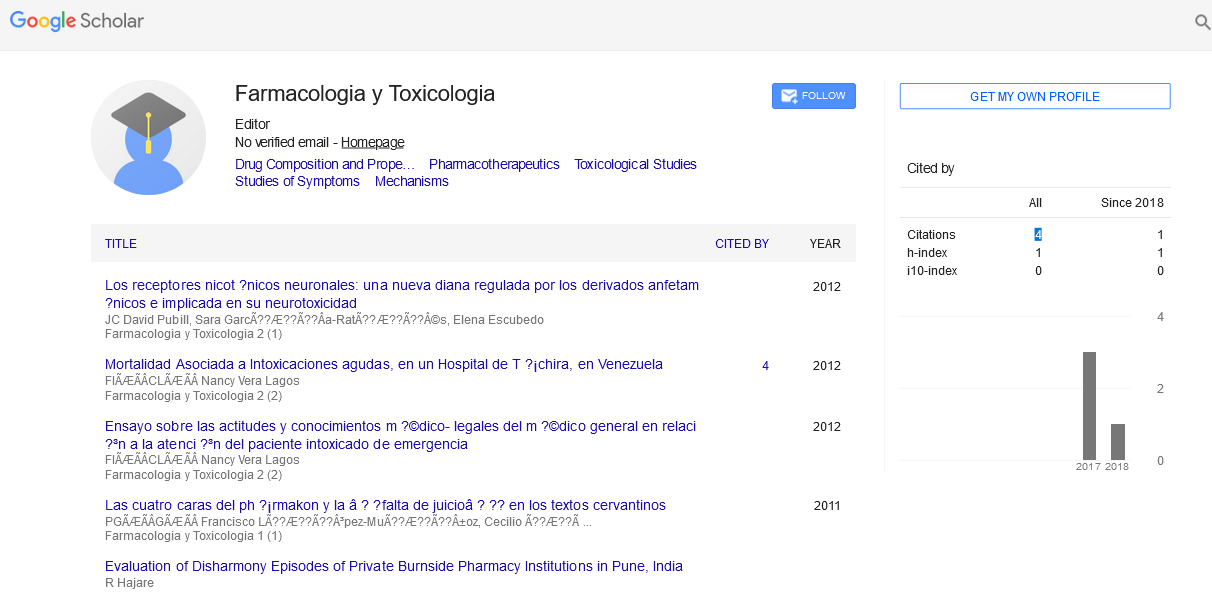Mini Review - (2023) Volume 13, Issue 3
Bio Process: Unlocking the Potential of Biological Systems
Raj Kumari*
Department of Business Management, College of Management, North State University, Raleigh, NC 26695, USA
*Correspondence:
Raj Kumari, Department of Business Management, College of Management, North State University, Raleigh, NC 26695,
USA,
Email:
Received: 01-Jun-2023, Manuscript No. ipft-23-13839;
Editor assigned: 05-Jun-2023, Pre QC No. P-23-13839;
Reviewed: 20-Jun-2023, QC No. Q-23-13839;
Revised: 23-Jun-2023, Manuscript No. R-23-13839;
Published:
30-Jun-2023
Abstract
Bio-processes, rooted in the principles of biotechnology and biological sciences, have emerged as a promising avenue for sustainable and ecofriendly applications across diverse industries. This abstract highlights key advancements in bio-processes, showcasing their potential to address global challenges, promote circular economies, and revolutionize various sectors. The abstract begins by elucidating the fundamental principles of bio-processes, emphasizing the utilization of living organisms, such as bacteria, yeasts, and enzymes, as catalysts for diverse biochemical reactions. It explores the significance of metabolic engineering, synthetic biology, and genetic modifications in enhancing the efficiency and versatility of bio-processes. The abstract then delves into specific applications of bio-processes in different industries. In the agricultural sector, bio-processes have been employed for the production of biofertilizers, bio-pesticides, and bio-remediation techniques, ensuring sustainable and environmentally friendly practices. Additionally, bioprocesses have revolutionized the pharmaceutical industry, enabling the production of complex therapeutic proteins, vaccines, and bioactive compounds through recombinant DNA technology and fermentation processes. The abstract concludes by highlighting the challenges and future prospects of bio-processes. It discusses the importance of optimizing process parameters, improving strain engineering techniques, and addressing regulatory and ethical considerations. Moreover, it underscores the need for interdisciplinary collaboration and continuous research to unlock the full potential of bio-processes and realize their broader societal and environmental benefits. This abstract provides a comprehensive overview of the advancements in bio-processes and their transformative potential in addressing global challenges, promoting sustainability, and revolutionizing various industries. Harnessing the power of nature, bio-processes offer a promising pathway towards a greener and more sustainable future.
Keywords
Bio process; Biotechnology; Industrial bioprocessing;
Fermentation
INTRODUCTION
Bio process, also known as bioprocessing or bio
manufacturing, refers to the use of biological systems and
living organisms to produce valuable products, ranging
from pharmaceuticals and biofuels to food ingredients
and specialty chemicals. It involves the application of
various biological techniques and engineering principles
to harness the potential of living organisms for industrialscale
production. The field of bio process has witnessed
significant advancements in recent years, revolutionizing
industries and offering sustainable and efficient alternatives
to traditional manufacturing processes. This article
explores the fundamental concepts, applications, and
future prospects of bio process. Bio process, also known as
bioprocessing, is a field of study within biotechnology that
focuses on the use of living organisms or their components
to produce valuable products on an industrial scale. It
involves harnessing the power of biological systems, such
as microbes or enzymes, to carry out specific functions that
can be applied in various industries. Bio process plays a
crucial role in the production of biopharmaceuticals, which
are therapeutic substances, derived from biological sources.
These include vaccines, antibodies, hormones, and enzymes
used for various medical treatments [1, 2].
Once the desired product is produced by the
microorganism, downstream processing steps are employed
to isolate, purify, and formulate the final product. This
may involve techniques such as filtration, chromatography,
centrifugation, and drying to obtain a high-purity, stable,
and bioactive product ready for commercial use. The ability
to engineer microorganisms to produce specific proteins has
revolutionized the pharmaceutical industry, allowing for
the production of complex molecules that were previously
difficult or impossible to obtain through traditional
chemical synthesis. One of the key techniques used in bio
process is fermentation, which is the controlled growth of
microorganisms to produce desired products. This process
has been utilized for centuries in the production of food
and beverages like bread, beer, and cheese. However,
with advancements in genetic engineering and other
biotechnological tools, the applications of bio process have
expanded to include a wide range of products, including
biofuels, bio plastics, enzymes, and biopharmaceuticals.
Bio process is a dynamic and interdisciplinary field that
combines biology, chemistry, engineering, and other
sciences to harness the power of living organisms for
industrial applications. It continues to drive innovation
and has the potential to address global challenges such as
sustainable energy production, waste management, and the
development of novel therapeutics.
DISCUSSION
Understanding bioprocess
Bio process utilizes the inherent capabilities of biological
systems, such as cells, enzymes, and microorganisms, to
perform specific tasks and produce desired products. It
involves multiple stages, including upstream processing,
fermentation, downstream processing, and product
recovery.
Upstream processing: This stage involves the preparation
and optimization of biological materials for the production
process. It includes steps like cell line development,
media formulation, and genetic engineering to enhance
productivity and yield [2].
Fermentation: Fermentation is a critical step in bio process
where the biological system, such as bacteria, yeast, or
mammalian cells, is cultivated in controlled environments.
These microorganisms utilize nutrients in the growth media
to produce the desired product, be it therapeutic proteins,
enzymes, or organic compounds.
Downstream processing: Once the desired product is
synthesized within the biological system, downstream
processing focuses on isolating and purifying the product
from the complex mixture. Techniques such as filtration,
chromatography, and centrifugation are employed to
obtain a high-purity product [4, 5].
Product recovery: The final stage involves drying,
formulation, and packaging of the purified product,
making it ready for distribution and use.
Applications of bio process
Pharmaceuticals: Bio process plays a pivotal role in the
production of therapeutic proteins, monoclonal antibodies,
vaccines, and other biopharmaceuticals. By utilizing
genetically engineered cells and organisms, it enables
the cost-effective and large-scale production of complex
molecules.
Biofuels: In the quest for sustainable energy sources, bio
process offers solutions by converting renewable feed stocks
such as biomass, algae, and waste materials into biofuels
like ethanol, biodiesel, and biogas. This reduces reliance
on fossil fuels, minimizes greenhouse gas emissions, and
promotes a circular economy.
Food and beverage: Bio process is instrumental in
producing a wide range of food ingredients and additives.
It enables the production of enzymes, vitamins, amino
acids, and flavor compounds through fermentation and
microbial processes, ensuring safer and more efficient food
production [6].
Environmental Remediation: Biological processes
are employed in environmental applications, such as
wastewater treatment, bioremediation of contaminated
sites, and air pollution control. Microorganisms and
enzymes are utilized to degrade pollutants, convert waste
into valuable products, and restore ecosystems [7].
Future prospects
The field of bio process holds immense potential for further
advancements and innovation. Here are some key areas
that are expected to shape the future of bio process:
Bioremediation and waste management: Bio processes
offer innovative solutions for cleaning up contaminated
environments and managing various types of waste. Future
advancements may involve the development of more
efficient and targeted bioremediation techniques to address
complex pollutants and enhance waste treatment processes.
Biofuels and renewable energy: Bio processes play a vital
role in the production of biofuels, such as ethanol and
biodiesel, from renewable biomass sources. The future
may see the development of advanced biofuel production
methods, including genetically engineered microorganisms
and enzymatic processes, to improve efficiency, yield, and
the utilization of non-food biomass [8, 9].
Industrial biotechnology: Bio processes are increasingly
applied in various industries, including pharmaceuticals,
chemicals, and agriculture. Future prospects involve the
expansion of bio-based manufacturing methods, such as
fermentation and biocatalysis, to produce a wide range
of products, including specialty chemicals, enzymes, and
bioplastics. This can lead to a reduction in the use of fossil
fuels, lower carbon emissions, and increased sustainability
in industrial processes.
Synthetic biology: The combination of bio process
and synthetic biology offers new avenues for the design
and construction of biological systems with enhanced
functionalities. This emerging field enables the creation of
novel organisms and metabolic pathways, leading to the
production of valuable compounds not found in nature.
Single-use bioreactors: Traditional stainless-steel
bioreactors are being replaced by single-use bioreactors,
which offer numerous advantages such as reduced
contamination risk, enhanced flexibility, and lower capital
costs. This shift is expected to streamline bioprocessing
operations and improve efficiency [10].
Continuous bioprocessing: Continuous manufacturing
processes, as opposed to batch processes, are gaining
traction in the bio process industry.
CONCLUSION
Bio processes play a vital role in various aspects of our
lives, ranging from healthcare and medicine to energy
production and environmental sustainability. The field of
bio process engineering has significantly advanced over
the years, allowing us to harness the power of biological
systems for the development of innovative solutions. One
of the key strengths of bio processes lies in their ability to
utilize renewable resources and minimize the impact on
the environment. Biotechnological advancements have
led to the production of biofuels, bio-plastics, and biobased
chemicals, reducing our reliance on fossil fuels and
decreasing greenhouse gas emissions. This shift towards
sustainable practices is crucial for mitigating climate change
and preserving our planet for future generations. Moreover,
bio processes have revolutionized healthcare and medicine.
Biopharmaceuticals, such as vaccines and gene therapies,
are now produced using bio process techniques, offering
targeted and personalized treatments for various diseases.
Additionally, bio process engineering has enabled the
development of diagnostic tools, bio sensors, and biochips, improving disease detection and monitoring. Furthermore,
bio processes have paved the way for breakthroughs in
agriculture, food production, and waste management.
Through genetic engineering and bioremediation
techniques, we can enhance crop yields, develop diseaseresistant
plants, and clean up polluted environments.
These advancements have the potential to address global
food security challenges and reduce the negative impact of
industrial activities on ecosystems. Despite the remarkable
progress made in bio process engineering, there are still
challenges to overcome. Optimization of bio process
parameters, scalability, and cost-effectiveness remain areas
of active research. Furthermore, ethical considerations
surrounding genetic engineering and the responsible use of
biotechnology need careful attention.
Bio processes have revolutionized numerous industries and
hold great promise for solving pressing global challenges.
Continued research, innovation, and collaboration across
disciplines are essential for further advancements in this
field. By harnessing the power of nature, we can unlock
new possibilities and create a sustainable and healthier
future for humanity.
ACKNOWLEDGMENT
None
CONFLICT OF INTEREST
No conflict of interest to declare about this work.
REFERENCES
- Zadik Yehuda, Aktaş Alper, Drucker Scott. Aneurysmal bone cyst of mandibular condyle: A case report and review of the literature. J Craniomaxillofac Surg.2012; 40(6): 243-248.
Indexed at, Google Scholar, Crossref
- Ye Y, Pringle LM, Lau AW. TRE17/USP6 oncogene translocated in aneurysmal bone cyst induces matrix metalloproteinase production via activation of NF-kappaB.Oncogene.2010; 29(2): 3619-3629.
Indexed at, Google Scholar, Crossref
- Mankin HJ, Hornicek FJ, Ortiz-Cruz E, et al. Aneurysmal bone cyst: a review of 150 patients. J Clin Oncol.2005; 23(1): 6756-6762.
Indexed at, Google Scholar, Crossref
- Amanatullah DF, Clark TR, Lopez MJ, et al. Giant Cell Tumor of Bone. Orthopedics.2014; 37(5): 112-120.
Indexed at, Google Scholar, Crossref
- Baig R, Eady J. unicameral (simple) bone cysts. Southern Medical Journal .2005; 99(4): 966-976.
Google Scholar, Crossref
- Milbrandt, Todd; Hopkins, Jeffrey. (2007) unicameral bone cysts: etiology and treatment. Curr Opin Orthop. 2007; 18(6): 555-560.
Indexed at, Google Scholar, Crossref
- Rapp Timothy B, Ward James P, Alaia Michael J. Aneurysmal Bone Cyst. J Am Acad Orthop Surg.2012; 20 (5): 233-241.
Google Scholar, Crossref
- Ozyurek Selahattin, Rodop Osman, Kose Ozkan, et al. Aneurysmal Bone Cyst of the Fifth Metacarpal. Orthopedics. 2009; 32(5): 606-609.
Indexed at, Google Scholar, Crossref
- Rodrigues CD, Estrela Carlos Traumatic Bone Cyst Suggestive of Large Apical Periodontitis. Journal of Endodontics.2008; 34(6): 484-489.
Indexed at, Google Scholar, Crossref
- Bloodgood, Joseph C. Benign Bone Cysts, Ostitis Fibrosa, Giant-Cell Sarcoma and Bone Aneurism of the Long Pipe Bones. Annals of Surgery.2011; 52(2): 145-185.
Indexed at, Google Scholar, Crossref





